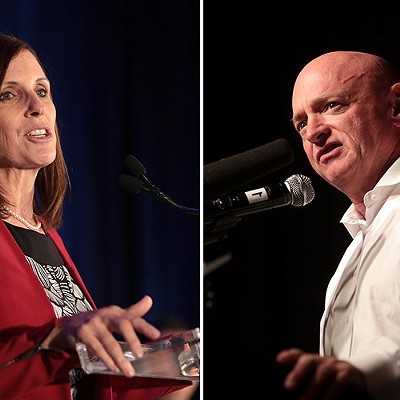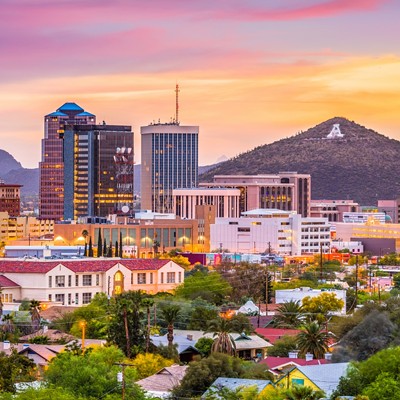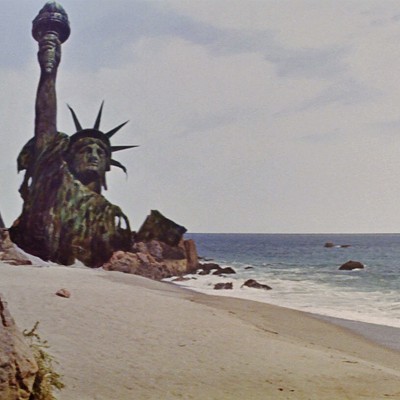On one side are those arguing that land agencies--in this case, the U.S. Forest Service--need the extra revenue to compensate for shrinking federal funds. But fee opponents say citizens already pay for such preserves through taxes. And they call fees a major salvo in a right-wing drive to privatize America's natural heritage.
Those critics also note that every business knocking at the forest's door--from cattle ranchers to mining and logging companies--tap national resources at fire-sale prices, while Joe Public gets stuck with the tab.
This year, the detractors' broad list of gripes landed in a court of law. And last month, a federal judge issued a decision that may just send the Mount Lemmon fee booth packing.
On Sept. 5, U.S. Magistrate Judge Charles Pyle ruled that the Coronado National Forest broke the law by trying to collect a $5 fee from Chris Wallace. A Tucson legal secretary and avid hiker, Wallace argued that she shouldn't have to pay for simply visiting her public lands, particularly when she wasn't using any facilities.
Since 1996, the Forest Service has charged for use of campgrounds, roads and other facilities under the trial fee program. And that program has proved fruitful: According to a 2003 U.S. Government Accountability Office report, fee demo has earned more than $900 million since its inception.
Locally, the Santa Catalina Mountains--including Sabino Canyon--raise between $600,000 and $700,000 from fees each year. Of that, about $100,000 reportedly goes to informative and interpretive services; $300,000 goes for safety and water systems, and $75,000 goes to enforcing fee compliance.
But the program has also proven hugely unpopular, sparking organized opposition from activists and steady criticism in Congress.
Congress did renew fee demo two years ago, however, by replacing it with the Federal Lands Recreation Enhancement Act, or FLREA. Still, the measure was sneaked through with a pinched nose, as an attachment to a huge spending bill.
And to its credit, the new statute did contain fresh restrictions on where and when federal agencies could charge visitors. According to the law, fees could no longer be levied "solely for parking, undesignated parking or picnicking along roads or trail sides." Nor could people be charged for general access--such as at the Mount Lemmon kiosk.
To get around this, Coronado officials then followed the example of other forests by designating the Santa Catalina Mountains as a "High-Impact Recreation Area," or HIRA.
Appearing before Judge Pyle, federal lawyers argued that Mount Lemmon fees "are charged for use of a recreation area that contains all the amenities and meets all the other requirements" of HIRA and Forest Service guidelines. That included a $5 fee, payable at the kiosk, for people like Chris Wallace who simply want to park at a trailhead and hike.
Judge Pyle didn't buy it. In a lengthy decision, he wrote that HIRAs didn't authorize blanket fees for the entire mountain, but only for visiting specific, improved areas.
Under the government's tortured logic, he wrote, "While the driver of a car may legally park her car within the HIRA, she cannot get out of her car without paying a fee. With the possible exception of amorous teenagers, the concept of parking one's car but not getting out to enjoy the fresh air and take in the beautiful sights is just not a commonplace occurrence."
Judge Pyle also noted that the FLREA specifically prohibits charging fees for "road or trailside picnicking, camping at undeveloped sites, for using a trail or for trailside parking."
He subsequently dismissed the charges against Wallace, and they can't be refiled.
Following this harsh rebuke, the U.S. Attorney for Arizona has filed a notice of appeal. But given the thoroughness of Judge Pyle's ruling, any avenues for that appeal seem quite slender. "I suppose they could argue that the judge didn't show proper deference for allowing the Forest Service to create its own procedures," says Mary Ellen Barilotti, an attorney handling Wallace's case. However, she predicts tough sledding for the Forest Service "if they are going to argue from the record of this case."
This was a clear-cut decision, Barilotti says. "The judge said if (the Forest Service) wants to charge a fee, then they should make a law for federal forest fees. But (the Forest Service) knows the fees don't have political support."
Joe Walsh, a Forest Service spokesman in Washington, D.C., declined to comment on the pending case.
But Kitty Benzar isn't surprised at the government's latest move, considering the stakes. As co-founder of the Colorado-based Western Slope No-Fee Coalition, she says Judge Pyle's decision could bring the nationwide fee program crashing down. "I think it has the potential to do that, which is why they really had no choice but to file an appeal."
Here at home, Chris Wallace was just glad to have her day in court. "When I first decided not to pay the tickets and to challenge them, I really didn't understand the law," she says. "I just felt in my heart that it wasn't right to have to pay to go hiking. And I felt at the hearing that the judge really understood our argument."
Kitty Benzar says Wallace "won on the grounds that the law means what it says. Which is this: While (fees) are allowed in certain circumstances, there are certain specific ones where they are not allowed. Congress spelled those out pretty clearly. And the Forest Service attempted to make an end-run around those, by saying that if it's inside of a HIRA, they can ignore those prohibitions.
"That failed. Chris won on the law."
Still, Benzar predicts a Forest Service fight to the bitter end, "because they've become addicted to these fees like you can become addicted to drugs. And it's going to be hard for them to kick that habit."












